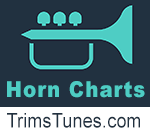
Posi-Tone Records will soon release Triple Play, the newest recording by Doug Webb. Webb is a long time resident of California and formidable tenor player in his own right. He is joined by his brothers on the tenor saxophone Walt Weiskopf and Joel Frahm. The tenor trio is backed by relative newcomers Brian Charette on organ and Rudy Royston on drums.
The recording was recently brought to my attention by Posi-Tone’s Marc Free however I have been familiar with the three tenor players for some time. Doug Webb and I were at Berklee College of Music at the same time and he was among the best players there at that time. Walt Weiskopf and I have a former student in common named Ed Rosenberg who co-wrote Beyond the Horn with Weiskopf. Lastly, I have had the pleasure to interview Joel Frahm in a “mini-view” here on SaxShed.com. I listened to Triple Play by Doug Webb no less than 4 times before completing this review. For those readers who are not familiar with any or all of these wonderful tenor saxophone players – you are missing out if you are not already listening to them.
The opening cut Jones, based on the changes of Have You Met Miss Jones opens with Doug Webb front and center on a hard swinging romp through the changes. Frahm, solos second swinging just as hard but with occasional punctuated staccatos and guttural growls emitting from his tenor. Walt Weiskopf bats clean up with a hard bopping solo of his own, with just a hint more edge than the first two. Finally the trio trades fours on the final vamp.
The second cut Three’s A Crowd was the first cut I heard on a SoundCloud preview upon the first two listenings. The 3 part unison melody is followed by Weiskopf’s hard edged and angular solo, nicely balanced by Webb’s Coltrane-inspired chorus. Frahm explores the upper range of the tenor and a decidedly different approach on the changes than the other two tenor men. Relative newcomer Brian Charette solos on Hammond B-3 before the final chorus.
What tenor saxophone recording featuring three tenor players playing early Selmers on Otto Link metal mouthpieces would be complete without a version of Giant Steps? Frahm opens up with the first jagged chorus and quickly embarks on a stream of 8th notes making the brisk tempo feel as smooth as silk. Webb and Weiskopf follow with hard bopping solos of their own. They all pay homage to John Coltrane while at the same time offering their own twist on this jazz classic. The relatively short version beckons multiple listens as there is a lot of information traveling through these very capable hands.
Weiskopf’s The Way Things Are shares the changes with the jazz standard All The Things You Are. His original Parkeresque melody weaves through the changes as does his first solo. Joel Frahm chooses some melodic motifs in which to begin his somewhat schizophrenic solo. (and I mean this as a compliment) Frahm transforms his melodic ideas into more angular lines leading into the altissimo and unexpected staccato passages. As if it were not enough, he hints at the blues before Doug Webb makes quick work of the brisk tempo. Lastly, the three brothers play the out chorus in harmony reminiscent of Woody Herman’s Four Brothers.
The 300+ beats per minute Avalon played at break neck speed clearly demonstrates these tenor giants are not afraid of tempos. Webb solos first. His blisteringly fast lines sound comfortable and relaxed before finally quoting the melody during his last few bars. Weiskopf’s tenor sounds somewhat angry over the stop time intro to his chorus. He continues to eat up and spit out his lines over the ambitious tempo. Frahm picks up without hesitation where Weiskopf left off. His style is neither angry nor relaxed but almost playful. Charette takes the last ride on organ over his own percolating bass line. Drummer Rudy Royston gets a piece of the action with some impressive 8s played with the three tenor men before the final chorus.
Jazz Car written by Joel Frahm is set to the changes of Charlie Parker’s Blues For Alice although not in the typical key of F concert. Jazz Car is written in G concert which puts it in the slightly more challenging key of A on the tenor saxophone. Frahm alternates between using his traditional jazz vocabulary and a decidedly more modern and dissonant approach. Walt Weiskopf solos second, showing off his post-Coltrane tenor sound and skills. Doug Webb’s sound here is big and warm to start. Initially his playing is very reminiscent of Dexter Gordon whether by coincidence or design. He leaves the Dexter behind, turns on the juice and inspires some spirited interplay between the entire group.
The joyful Your Place Or Mine credited to R. Aldcroft is penned by long time Webb colleague of Randy Aldcroft. Upon first listening I tried to identify the standard without success. A little searching revealed the Webb/Aldcroft connection. Aldcroft is also responsible for three of the arrangements on Triple Play. Perhaps not a standard but if this tune is not already well known, it should be. Webb solos first followed by Frahm and ultimately Weiskopf who’s sound here seems devoid of the same edge heard elsewhere on the recording.
Fans of standards and traditional, straight ahead jazz will likely gravitate toward Webb’s version of the classic I Concentrate On You. The 3 part harmony and melodic tenor features are delightful to listen. Frahm’s clear tenor sound stands out on his short melodic passages confined to his high register.
The final three cuts on Doug Webb’s Triple Play include Lanny Morgan’s medium up Pail Blues, Lou Donaldson’s Alligator Boogaloo and the title cut. These last tracks showcase the same great playing found earlier on Triple Play along with a few noteworthy moments.
Brian Charette’s time and feel – exemplified in his 8th notes played over his walking bass line – are simply fantastic. His solos – especially on both Pail Blues and the earlier Jazz Car – are worth the price of the recording by themselves.
Donaldson’s soulful Alligator Boogaloo features Webb’s lone tenor solo. By far not the most sophisticated solo recorded on this blowing session, Webb says it all in only 3 gritty choruses. Charette then further schools us on how the Hammond B-3 is intended to be played.
The ultimate title track on Triple Play features the three tenors on rhythm changes in Bb. What can be said? Doug Webb, Walt Weiskopf and Joel Frahm backed by Brian Charette and Rudy Royston – I’m done attempting to describe this must-have recording on Posi-tone Records. BUY IT. You wont’ regret it!
ss








